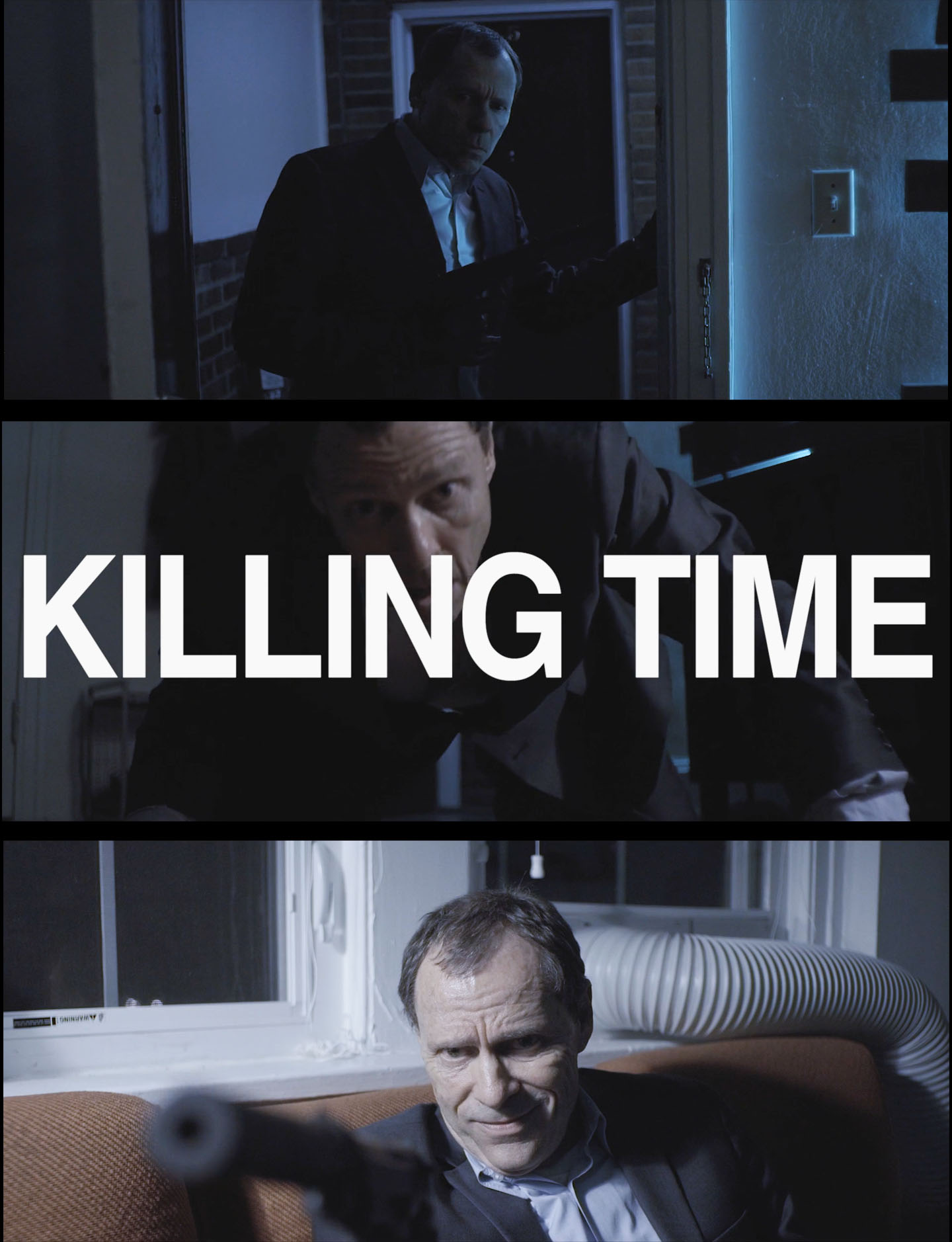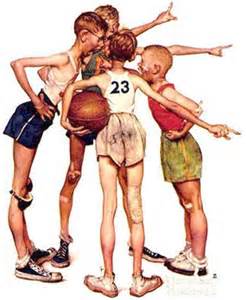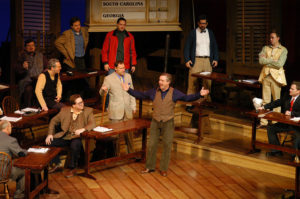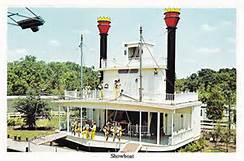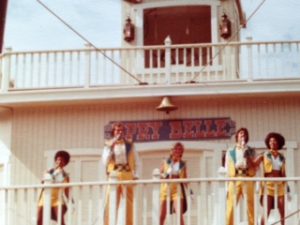The Dark Side of Inspector Clouseau
If you are squinting at this split-screen, poster image of a man with a weapon bearing expressions from quizzical to surprise to menacing and wondering “could that be?” then let me confirm either your weak eyesight or questioning mind or both. It is I, a gun in my black-gloved hand. And so let the Jimi Hendrix tune “Hey Joe” play in your mind, “Hey Joe, where you goin’ with that gun in your hand?”
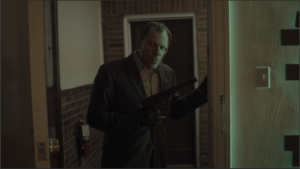
Now I do not find myself wielding a weapon very often. We live on the property that has been in Kay’s family for over one hundred years. After living in a condominium in Los Angeles for several years with a postage stamp for a back yard, it was great to have acres and acres of farm land out our back door. And part of the fun of having access to such open territory is the opportunity to have target practice with a variety of weaponry. When the mood strikes, we will gather up a collection of empty cans of Kay’s Big Sexy Hair or TRESemme spray or my Barbasol shaving cream or a box of clay pigeons and the skeet launcher, go back on the farm, and commence to shooting.
When our daughters went off to college in Philadelphia they would bring their northern friends home and expose them to the pleasures of country life. It did not take long for word to spread on campus before caravans of cars packed with the girl’s friends would arrive for a Thanksgiving holiday or a spring break. The Florida beaches had fewer revelers during those years; hard to compete with bonfires and cookouts, four-wheel drive trucks and dirt bikes, a well-stocked pond with a dock, our makeshift firing range for target shooting, two racks from which to choose a pipe for smoking a variety of tobaccos (all participates of age and all substances legal), and lots of love.
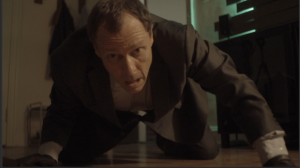
I am a fair shot although not as good as Kay, who even as a young girl, upstaged an older neighbor and his friend who kept firing and missing a rascally rabbit romping through our back field. She requested to take a shot, which was met with disdain by the males until she fired the .22 rifle. Her status as a one-shot wonder became legend, and she replaced Mr. McGregor as Peter Rabbit’s worst nightmare.
Last summer we were hosting a large, all-day gathering at the house. We even splurged and rented an inflatable water-slide. We set up the fifteen-foot beast next to our garden house so we could power the electric generator which ran nonstop keeping the air pumping into the slippery monster so our guests, ranging in age from 3 to 70, could wear themselves out climbing and sliding…repeat ad infinitum.
For weeks leading up to this day I had noticed a groundhog coming from beneath the garden house. He would raid my garden or forage the pears that had fallen to the ground from a nearby tree. I crawled around the garden house and saw mounds of dirt where he had burrowed numerous holes beneath the structure. He was not just paying us a visit. He had taken residence. This would not stand, and I told Kay that the groundhog’s days were numbered. She was fine with me putting out a “hit” on the groundhog, but as the time drew nearer to our event, she repeatedly said, “Don’t shoot that thing this close to the party.” You can see where this is going.

Just days before the party Kay was at work and I was home writing. I would take periodic breaks and pass by the picture window in the living room, not to enjoy the view, but in hopes of catching a glimpse of the varmint. I would see him dash across the yard or stand on his hind legs looking in my direction, snout in the air, chattering away, which sounded to me like groundhog for “I have diplomatic immunity, sucker” before he gleefully dove under the garden house. I shook my fist and cursed him…aloud, but kept our .22 bolt-action in the case until the taunting and the temptation became too much.
At first, I thought I had missed him because after firing the single round he dashed under the garden house, and since he did not show his head again, I thought I had at least put the fear of God in him…until the day before the party when I was straightening up the garden house in preparation for the festivities. I caught a whiff of something foul, and my first thought was not that I had achieved the “great white hunter” status, but that I was in deep trouble. How was I going to spin this? If only I were a politician and could blame someone else. Talk about your “smoking gun.” I did choose to let Kay discover the olfactory truth as opposed to me just announcing it, and because it was the middle of August, I did not have to wait long to be found out.
“What did you do?” “You didn’t did you?” “Didn’t I tell you not to?” came the flurry of stern questions that required no answer. But I ask you, how many hit men do you know who give their wives the details of their workday? However, I made the effort, taking full responsibility with the “I cannot tell a lie” approach. The entrance of the garden house extends out onto a large patio with a pergola overhead and beyond that is the garden with a fountain in the center, so the majority of our eating and drinking, visiting, and playing on the water-slide would be confined to this area…the area where the invisible fog of decomposition would settle and remain not for hours, but days, with the aromatic peak hitting, you guessed it, on the day of the event. Our daughters, their husbands, and the grand kids had come for an extended weekend, and after the hugs and welcomes, their faces soon grimaced and the question arose, “What’s that awful smell?”
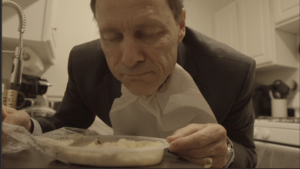
“I told your father. I told him,” were the first words from Kay’s mouth, and she regaled the children with the story of multiple warnings and of the smelly result of warnings unheeded. When our girls were the ages of our grand kids, they would often ask me to tell them stories. “Daddy, tell us a story about when you were bad.” I never disappointed them, and with one fateful round from my .22 bolt-action, I added to my literary opus of tales when I was bad. What with three grand children, I figured new narratives were needed for the next generation.
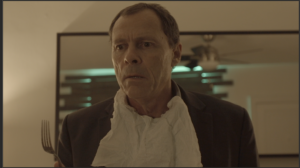
Over the course of the arrival of our family and friends, Kay had numerous opportunities retelling the source and cause for the unpleasant odor. She soon grew weary of the frequency of her story, and having reached the point of exhaustion with the last few arrivals, she just pointed to me when the face of a guest began to contort as they made their inquiry regarding the befouled atmosphere. I now had the freedom to tell my perspective as long as I was faithful to include Kay’s stern warning not to do what I eventually did. It was too good an opportunity for me to pass up, was my best argument, and in spite of the odor, I remember us having a grand time with no one turning on their heels and heading home after catching a whiff or the loss of their appetite when the meal was served.
If you happen to believe in reincarnation and find yourself coming back as groundhog, unless you come back as the pampered Punxsutawney Phil, you will engage in destructive groundhog behaviors – you can’t help it, the groundhog DNA demands it. And if you find that you have taken residence beneath our garden house, building a tunnel system through the soil and feasting on the bounty of my garden and fruit trees, then prepare for your present re-embodiment to be short-lived. You will be dispatched back to Buddha Central to embrace yet another life in the cyclical search for Nirvana.

If you have read this far and a few more minutes to “kill” (5:40 to be exact), then bounce back to the Home Page of my website and click the “Killing Time” poster on the “Featured Projects” slider. The film will pop up, and you can watch this delightful short of a bumbling hit man not quite ready for prime time written and directed by Adam Rosenbaum.

